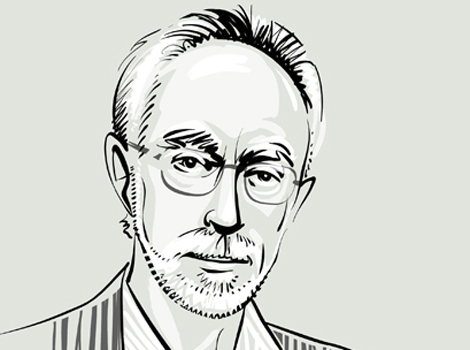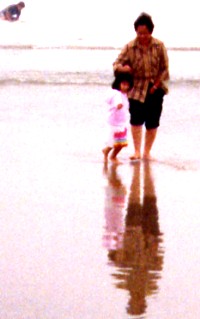
Notes
on a Voice: Simon Willis unpicks a lean and
menacing prose style
From
INTELLIGENT LIFE magazine, March/April 2013
Reading
J.M. Coetzee is like swimming in a sea with a calm surface and a savage
undertow. His sentences are lean, his subjects menacing: power, race,
animal
rights and confession. In his later work there’s a thread of religion
and
salvation. His new novel is called "The Childhood of Jesus".
Born
in South Africa in 1940, he spent his 20s suffering "the nausea of
facing
the empty page". The sickness abated in 1974, when he published his
first
novel "Dusklands". Since then he has written penetrating works of the
apartheid and post-apartheid eras—including "Life and Times of Michael
K" (1983) and "Disgrace" (1999), both Booker-winners—as well as
novels that are more like essays, and memoirs that are more like
novels. He won
the Nobel prize in 2003.
Before
becoming a novelist he was a mathematician and academic, and his
sentences
gleam with rigour and clarity. Some critics have found them too hard,
too
barren. But it’s a style, as Michael Wood has written, which takes you
"through stunted country but arrives at a region of desperate
feeling".
KEY
DECISION
Going
to Austin, Texas. In 1965, Coetzee went there to do a doctorate. In the
university library he found the early manuscripts for Samuel Beckett’s
novel
"Watt". Beckett gave Coetzee a sound. You can hear it most strongly
in the faltering monologues of "Dusklands" and "In the Heart of
the Country" (1977). The most important lesson of all was restraint.
"The thought was like a ravening dog", Coetzee wrote, "the prose
was like a taut leash."
GOLDEN
RULE
Keep
it spare. The leash became a choke-chain, and he drew it tightest in
"Disgrace", setting his protagonist, Professor David Lurie, on fire
with a single sentence: "The scrape of a match, and at once he is
bathed
in a cool blue flame." But the leash quivers with the power of
Coetzee’s
themes. "I am sunk into a state of disgrace from which it will not
be
easy to lift myself," Lurie says later.
STRONG
POINTS
(1)
Pronouns. "I" or "he" are simple words, unless Coetzee
writes them. "Boyhood" (1997), "Youth" (2002) and
"Summertime" (2009) are all autobiographical works. The first two are
written in the third person present tense. In the third, Coetzee is
dead. The
game poses serious questions. How much can we know about ourselves?
What does it mean to tell the truth? (2) Form. As well as oblique
memoirs,
Coetzee has written allegories and epistles. In "Diary of a Bad Year"
(2007) he divided each page into three, one for each strand of the
narrative.
The result is a beautiful counterpoint, a fugue for three voices. (3)
Animals.
They give Coetzee many of his most piercing images of human
degradation.
Michael K drinks "like a guilty dog". The magistrate in "Waiting
for the Barbarians" (1980) hangs from a tree "like a great old moth
with its wings pinched together, roaring, shouting".
FAVOURITE
TRICK
Using
doubles. Animals were the subject of Coetzee’s Tanner Lectures at
Princeton in
1997. Except he didn’t give his opinions. He told stories about a
writer giving
hers. The most provocative of them compared industrial meat production
with the
Holocaust. Some critics thought he was being evasive; others that he
was
thinking about how ideas are embodied and lived.
ROLE
MODELS
Not
hard to spot: Coetzee writes novels about them. "Foe" (1986) is a
reworking of "Robinson Crusoe", "The Master of Petersburg"
(1994) is about the life of Dostoyevsky. The influence of Kafka is felt
in
Michael K’s name, which evokes "The Trial", as do his run-ins with
obscure and violent authority.
TYPICAL
SENTENCE
"There
seems to be no limit to the shame a human being can feel" ("Age
of Iron", 1990).
The
Childhood of Jesus Harvill
Secker, March 7th
Simon
Willis is
apps editor of Intelligent
Life
and a former associate editor of Granta.
Illustration Kathryn Rathke

